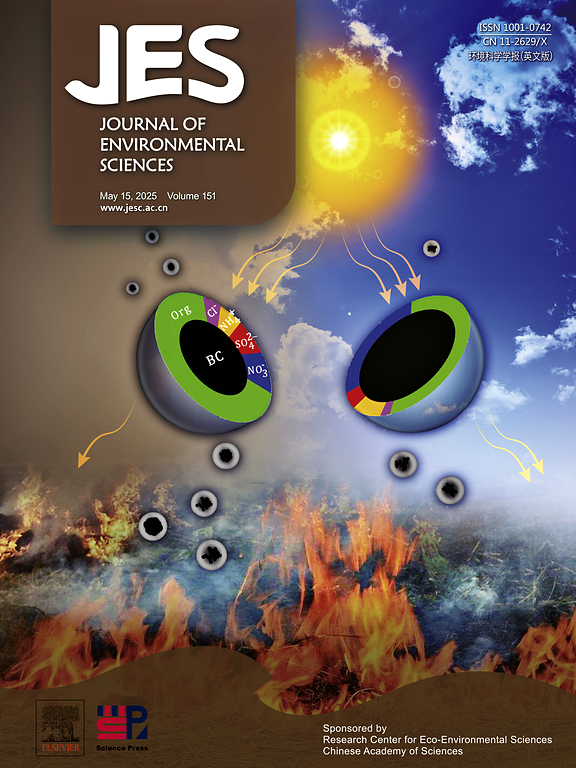CuO-modified activated carbon for the improvement of toluene removal in air
Release time:2024-12-01
Hits:

- Impact Factor:
- 5.565
- DOI number:
- 10.1016/j.jes.2019.07.001
- Affiliation of Author(s):
- 重庆工商大学
- Teaching and Research Group:
- 材料科学与工程系
- Journal:
- Journal of Environmental Sciences
- Funded by:
- 重庆市教育委员会
- Key Words:
- CuO modified activated carbon;Composite adsorbents;CuO species;Toluene;Adsorptive removal
- Abstract:
- We used an impregnation method to prepare CuO/AC (activated carbon) composite materials of different CuO content and characterized them via scanning electron microscope (SEM), Brunauer–Emmett–Teller (BET), and Fourier transform infrared spectroscopy (FT-IR). The effect of CuO content on toluene adsorption/desorption was evaluated. We explored the reusability of AC and AC03 (CuO modified AC with CuO loading 0.3 wt.%) adsorbents via toluene adsorption/desorption cycle testing. We used quasi-first- and quasi-second-order models, the Bangham model, and the Weber–Morris model to fit the toluene adsorption data. The introduction of CuO species evidently improved the adsorption performance of activated carbon toward toluene. The CuO content markedly affected the specific surface area, CuO dispersal, the numbers of oxygen-containing functional groups on the surface, and adsorption performance of the prepared composite adsorbents. Low CuO content was not favorable for the formation of active adsorption sites, while high content greatly reduced the specific surface area, and even covered active adsorption sites. The toluene adsorption performance varied in the order AC03 > AC02 > AC05 > AC08 > AC01 (AC03, AC02, AC05, AC08 and AC01 are CuO modifying AC with CuO loading 0.3, 0.2, 0.5 0.8 and 0.1 wt.%, respectively). The breakthrough time and toluene adsorption capacity of the AC03 composite adsorbent were 94 min and 701.8 mg/g, respectively, and the recycling efficiency was 92.8% after thermal desorption at 200°C. The adsorption process was best described by the Bangham model and adsorption could be divided into three stages.
- First Author:
- Bingman Lei
- Co-author:
- Biyan Liu,Huijun Zhang,Hongmei Xie
- Indexed by:
- 源刊论文
- Correspondence Author:
- Guilin Zhou
- Discipline:
- Engineering
- Document Type:
- Journal Article
- Volume:
- 88
- Page Number:
- 122–132
- Translation or Not:
- no
- Date of Publication:
- 2020-02-01
- Included Journals:
- SCI
- Links to published journals:
- https://doi.org/10.1016/j.jes.2019.07.001



